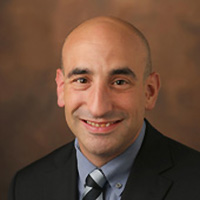Q&A: Potential of universal genetic database to balance privacy, law enforcement concerns
The pivotal role that long distance familial genetic searches played in the apprehension of the notorious Golden State Killer — and as a tool in dozens more cases since — has led experts from Vanderbilt University and Vanderbilt University Medical Center to make a provocative proposal about how investigative use of DNA should be regulated.
In an “Insights” piece in Science, they write that it’s time to think about whether a universal genetic forensic database would be a better method of balancing law enforcement and privacy concerns, and if so, how it would be structured and regulated.

DNA testing is a decades-old tool for law enforcement. As Bradley Malin, professor of biomedical informatics, biostatistics, and computer science, and the coauthors point out, traditionally it has been limited to accessing DNA databases of people convicted of crimes and, in some states, those who have been arrested. As a result, this approach disproportionately targets poor and minority populations.
The coauthors are James Hazel, JD, postdoctoral fellow, Center for Genetic Privacy and Identity in Community Settings; physician Ellen Wright Clayton, JD, Craig-Weaver Professor of Pediatrics, Law and Health Policy and co-director of the Center for Genetic Privacy and Identity in Community Settings; and Christopher Slobogin, Milton Underwood Professor of Law and director of Vanderbilt Law School’s Criminal Justice Program. Malin also is co-director of the Center for Genetic Privacy and Identity in Community Settings.
More recently, the widespread interest in tracing lineage or locating long-lost relatives has spurred millions to post contact information along with sequenced DNA results, resulting in a patchwork of data pools that law enforcement can access with little to no oversight.
The concept of a government-run, universal genetic database isn’t new, but it is contentious and has largely lived in the shadows of academic writing.
Below is a conversation with Vanderbilt computer scientist and biomedical informatics professor Bradley Malin. The full Q&A with the four authors is here.
Q: Mail order genetic tests to find relatives or trace ancestry are popular. Why is now the right time to get people thinking about the unexpected implications and potential regulatory approaches?
Malin: This has become such an interesting opportunity due, in part, to the fact that technology has advanced to the point where market competition has made sequencing cheap. Combined with easy access to websites that support the dissemination of such information, we have created a situation where people are incentivized to make the information available for all to see.
The existing forensic databases have a very biased view of our country’s population, so if we’re going to support law enforcement in their investigations, we should make such investigation fair for everyone. And, a natural way to do this would be to collect data on everyone — provided appropriate protections are in place.
For instance, we could require law enforcement to obtain a warrant to search a resource and create accountability structures that currently do not exist. We summarize several aspects of such a solution in the piece, while explaining that such a system is feasible given technology that exists today.
Q: Your piece highlights a bevy of questions that must be wrangled, including personal privacy, fairness and intrusion, data safety — not to mention concerns about government trust. What kind of reaction do you expect to this piece, and more broadly this concept?
Malin: We’re not the first to mention this, but, to the best of my knowledge, we are the first to give it such structure. I have no doubt that some people will have a knee-jerk reaction and argue that this proposal wreaks of a surveillance state and that it’s a non-starter.
In this respect, it is possible that some people push back because the proposed solution will be considered a direct infringement upon personal privacy. Others may push back based on the expectation of scope creep. History has shown that, at times, resources meant for one purpose may end up used for other purposes. The expanded use of the Social Security number over time serves as an example of such scope creep. However, with the appropriate accountability and governance in place, it is possible to mitigate the risk of such a situation.
Q: What do you want people to consider when thinking about the future of how DNA sequencing is used and accessed?
Malin: It is really a question of how society wants to govern itself. The way law enforcement currently uses this tool leads to a lot of collateral damage. They start questioning an entire family — and it may not even lead to the right individual.
It’s this threat to our social fabric that leads me to think the damage is worse than creating an infrastructure to let the criminal justice system do their business in an accountable way. The more you start thinking about it, the way society is being investigated is like cowboy country at the moment.
Related News: Malin, Wan are winners in health data privacy competition
Contact: Brenda Ellis, (615) 343-6314
brenda.ellis@vanderbilt.edu